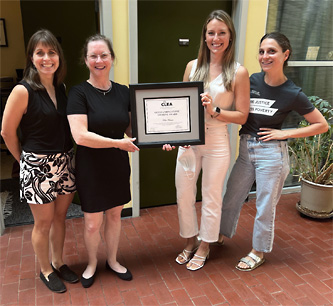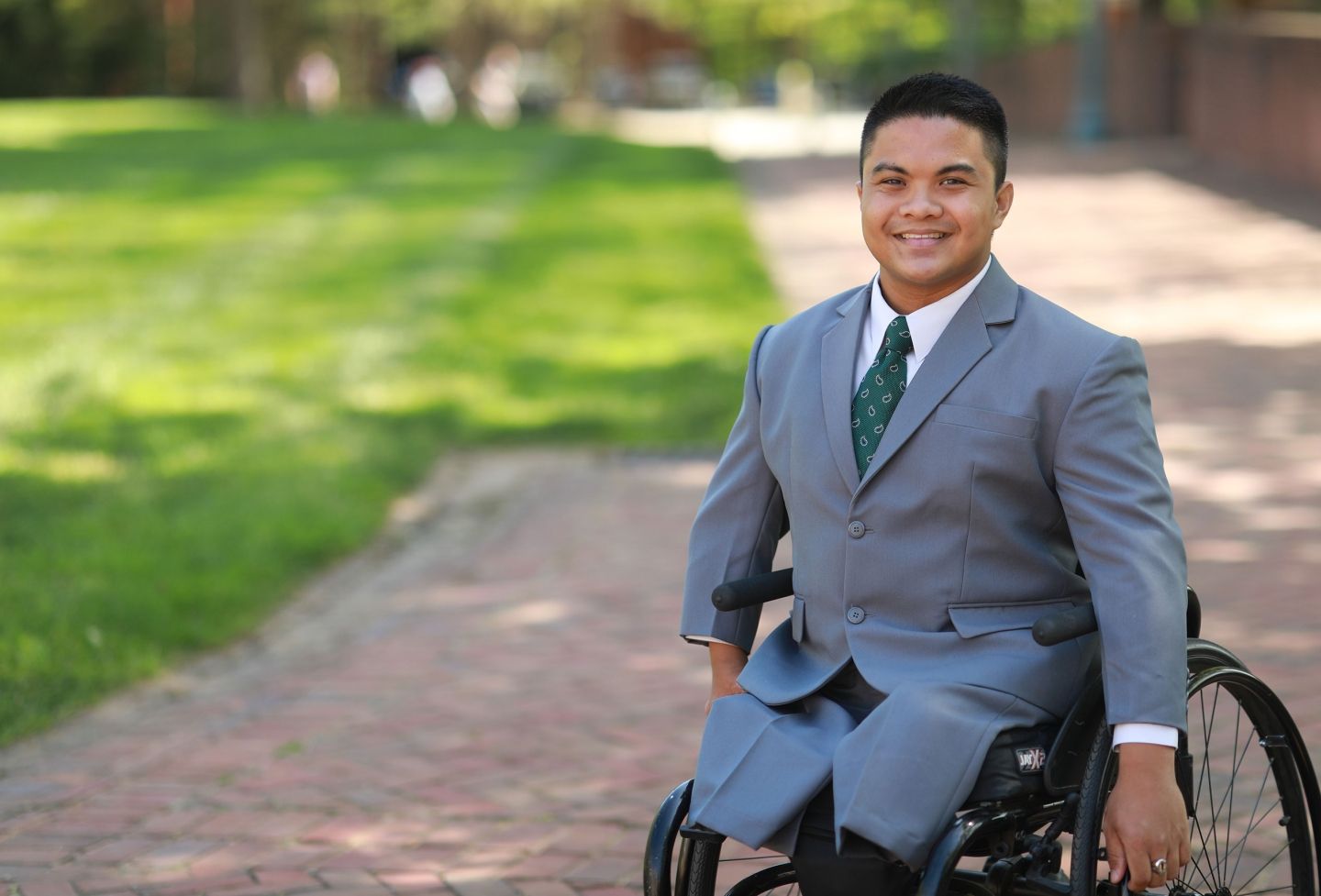During the past year, students in clinics at the University of Virginia School of Law secured the bonded release of an asylum-seeking client, helped a child with autism attend school and procured clients’ disability income and debt relief, among other accomplishments.
Virginia’s 24 legal clinics, many of which involve working directly with clients, offer students experience handling real-world problems. Seven of the clinics are operated in partnership with the Charlottesville-based Legal Aid Justice Center.
The following is a sampling of some of this year’s success and advocacy on behalf of clients:

- The Civil Rights Clinic worked extensively on two serious-offender review hearings this year. Young offenders have the opportunity to come back before the sentencing judge to amend the original sentence based on progress the young person has made during their commitment. Morgan Palmiter ’22 and Sujaya Rajguru ’22 secured an early release for their client, while Helen Song ’23 and Sydney Stanley ’23 also contributed to the effort.
- The Community Solutions Clinic worked with the Reclaimed Hope Initiative to create special educational materials and a plan for support for parents, and worked with activist Jess Walters to develop ideas for community-based support for people with chronic kidney disease.
- The Consumer and Economic Justice Clinic served nearly 20 clients in a number of debt collection and consumer matters. The work of three students resulted in the avoidance of approximately $43,000 in debt and recovered an additional $8,000.
- The Criminal Defense Clinic handled 21 cases in the spring, seeking dismissals through negotiation and pretrial communication. Prosecutors took three of the cases under advisement for potential dismissal if the defendants fulfill the court-ordered terms. Claire Reiling ’22 and James Harper ’22 each won dismissals for their clients.
- With the help of Elizabeth Putfark ’24, Professor Cale Jaffe ’01, director of the Environmental Law and Community Engagement Clinic, co-authored an amicus brief at the U.S. Supreme Court on behalf of the Idaho Conservation League in Sackett v. EPA. The case, which will be heard in October, examines whether wetlands are properly classified as “waters of the United States” under the Clean Water Act.
- At least 13 clients aided by the Federal Criminal Sentence Reduction Clinic had their sentences reduced.
- The First Amendment Clinic filed lawsuits revealing that the U.S. tracked the whereabouts of a Russian hacker. An article in Forbes magazine featured the clinic’s suits in its story.
- The Health and Disability Law Clinic helped clients successfully appeal Medicaid service cuts and denials, maintain disability income, file for medical deferred action status and erase medical debt. Their advocacy resulted in over $50,000 in disability income and debt relief.
- Clinic student Katie Kramer ’22 received the Clinical Legal Education Association’s Outstanding Clinical Student Award, which recognizes one such student at each U.S. law school.
- The Housing Litigation Clinic represented or provided advice to nearly 40 families facing eviction, discrimination, poor living conditions or illegal fees. In one example, Bria Smith ’22 helped a Scottsville family of six avoid eviction.
- The Immigration Law Clinic worked on various cases, with each student handling about 12 individual clients. Accomplishments include Lauren Murtagh ’23 obtaining a U visa certification from the Richmond Police Department for a client; the U visa is available to crime victims who assist in the investigation and prosecution of the crime.
- The Employment Law Clinic, now known as the Workplace Rights Clinic, assisted LAJC attorneys in writing letters to a dozen localities in Virginia requesting premium pay for farmworkers during the pandemic, under the American Rescue Plan Act.
- The Youth Advocacy Clinic advocated on behalf of over 25 young clients seeking appropriate services and better treatment in the context of special education rights, school discipline and juvenile justice. In one example, the clinic’s representation of an autistic preschooler who was denied instruction led to a negotiated settlement that ensured that the child, along with approximately 40 similarly situated students, would be able to attend the school.
More Clinic News
- 7.18.22 Decarceration and Community Reentry Clinic Students Help Formerly Incarcerated Regain Civil Rights
- 7.15.22 Innocence Project Wins Exoneration for Another Victim of Corrupt Detective
- 6.1.22 Environmental Clinic Joins Proposed Agreement with Dominion on Offshore Wind
- 5.17.22 Supreme Court Takes Clinic Case on Challenges to Convictions
- 5.13.22 Innocence Clinic Leaders Win UVA’s Collaborative Excellence in Public Service Award
- 5.3.22 Innocence Project at UVA Law Helps Obtain $6.25 Million in Compensation for Clients, Proposes Reforms
- 4.21.22 Appellate Litigation Clinic Racks Up Win for Free Speech
- 4.18.22 Clinic Helps Lawmakers Pass Childhood Literacy Bill
- 3.10.22 6 Innocence Project Clients Win Freedom So Far in 2022
- 3.8.22 Report Offers Recommendations for Reducing Racial Wealth Gap in Virginia
- 2.25.22 Clinic Notches Win as Honduran Court Tosses Activists’ Convictions
- 2.7.22 Clinic Students Win Release for Afghan Client in Complex Immigration Court Case
- 11.16.21 First Amendment Clinic Sues DOJ Again for Non-Prosecution Agreements — and the Master List
- 8.2.21 Accolades: Clinic Client Wins on Appeal
- 7.6.21 UVA Law Launches New Project on Criminal Justice Reform
Founded in 1819, the University of Virginia School of Law is the second-oldest continuously operating law school in the nation. Consistently ranked among the top law schools, Virginia is a world-renowned training ground for distinguished lawyers and public servants, instilling in them a commitment to leadership, integrity and community service.


